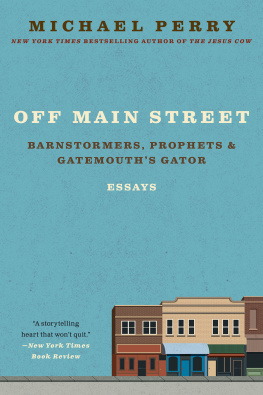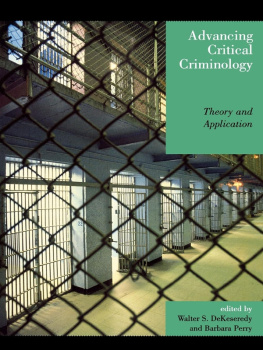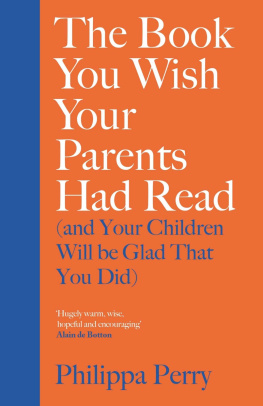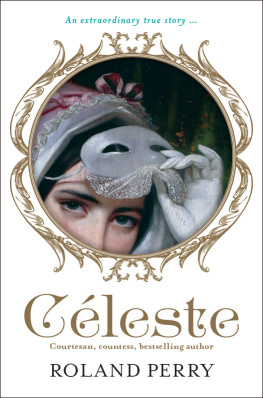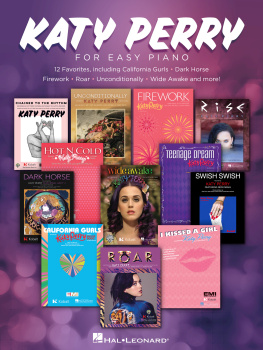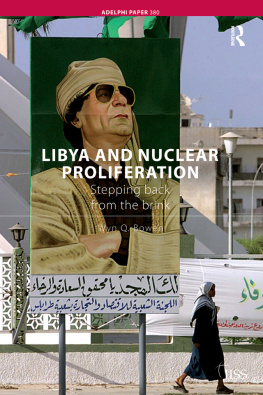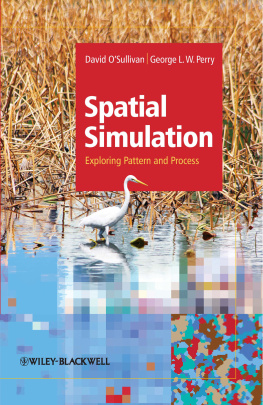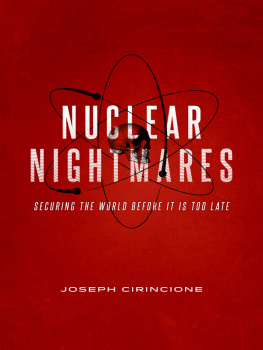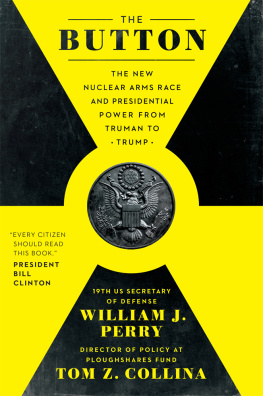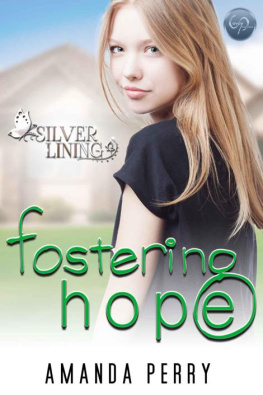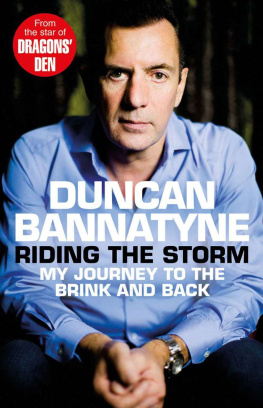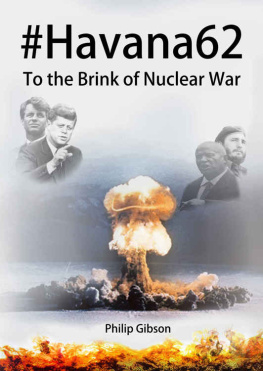Perry - My Journey at the Nuclear Brink
Here you can read online Perry - My Journey at the Nuclear Brink full text of the book (entire story) in english for free. Download pdf and epub, get meaning, cover and reviews about this ebook. year: 2015, publisher: Stanford University Press, genre: Politics. Description of the work, (preface) as well as reviews are available. Best literature library LitArk.com created for fans of good reading and offers a wide selection of genres:
Romance novel
Science fiction
Adventure
Detective
Science
History
Home and family
Prose
Art
Politics
Computer
Non-fiction
Religion
Business
Children
Humor
Choose a favorite category and find really read worthwhile books. Enjoy immersion in the world of imagination, feel the emotions of the characters or learn something new for yourself, make an fascinating discovery.

- Book:My Journey at the Nuclear Brink
- Author:
- Publisher:Stanford University Press
- Genre:
- Year:2015
- Rating:5 / 5
- Favourites:Add to favourites
- Your mark:
- 100
- 1
- 2
- 3
- 4
- 5
My Journey at the Nuclear Brink: summary, description and annotation
We offer to read an annotation, description, summary or preface (depends on what the author of the book "My Journey at the Nuclear Brink" wrote himself). If you haven't found the necessary information about the book — write in the comments, we will try to find it.
My Journey at the Nuclear Brink — read online for free the complete book (whole text) full work
Below is the text of the book, divided by pages. System saving the place of the last page read, allows you to conveniently read the book "My Journey at the Nuclear Brink" online for free, without having to search again every time where you left off. Put a bookmark, and you can go to the page where you finished reading at any time.
Font size:
Interval:
Bookmark:
MY JOURNEY at the NUCLEAR BRINK
WILLIAM J. PERRY
STANFORD SECURITY STUDIES
An Imprint of Stanford University Press
Stanford, California
Stanford University Press
Stanford, California
2015 by William J. Perry. All rights reserved.
No part of this book may be reproduced or transmitted in any form or by any means, electronic or mechanical, including photocopying and recording, or in any information storage or retrieval system without the prior written permission of Stanford University Press.
Library of Congress Cataloging-in-Publication Data
Perry, William James, author.
My journey at the nuclear brink / William J. Perry.
p. cm.
Includes bibliographical references and index.
ISBN 978-0-8047-9681-1 (cloth : alk. paper)
ISBN 978-0-8047-9712-2 (pbk. : alk. paper)
1. Nuclear weaponsGovernment policyUnited StatesHistory. 2. Nuclear arms controlUnited StatesHistory. 3. United StatesMilitary policy. 4. Perry, William James, 1927. I. Title.
UA23.P4655 2015
355.02'17092dc23
2015020251
ISBN 978-0-8047-9714-6 (digital)
Printed in the United States of America on acid-free, archival-quality paper. Typeset at Stanford University Press in 10/14 Minion.
To my loving wife of sixty-eight years,
LEONILLA GREEN PERRY,
and to our children, grandchildren, and
great-grandchild who have given me
the best of all reasons to continue
my work to ensure that nuclear weapons
are never used again
Contents
by George P. Shultz
Foreword by George P. Shultz
Throughout his life and work, William Perry has distinguished himself as a man of high intelligence, absolute integrity, rare vision, remarkable accomplishment, and an unwavering sense of humanity. Evidence of these attributes is vividly apparent in the gripping stories contained in this memoir chronicling Bills extraordinary efforts, over the course of his illustrious career, to reduce the nuclear threat.
Bills engagement in the issue of nuclear security began in the mid-1940s when, as a soldier in the US Army of Occupation in Japan, he witnessed the massive devastation in the aftermath of World War I. Following his service in Japan, he became a high-level national security adviser to the US government and participated in the development of reconnaissance technology that could detect Cold War nuclear threats. During the Carter administration, Bill served as undersecretary of defense for research and engineering. He worked to shore up deterrence of the Soviet Union by offsetting their numerical advantage in conventional forces through the development of stealth and other force-multiplying high-technology systems still in effective use today by our military (his offset strategy).
As secretary of defense under President Clinton, and in his subsequent Track 2 diplomacy work, Bill developed a successful negotiating style that combined incisive analysis, an ability to balance diverse security concerns, and effective persuasiveness. Bill used these diplomatic skills to establish military alliances with former adversaries in the postCold War era; an example is the Partnership for Peace in Europe. He succeeded in facilitating the Nunn-Lugar program to remove holdover nuclear arsenals from new republics after the Soviet Union broke apart. Bill also brought about international arms control initiatives and security arrangements for nuclear materials, vital steps on the road toward achieving nuclear security.
I have had the pleasure of working closely with Bill and being inspired by him in our shared effort to achieve better control over nuclear weapons and fissile material. In the past decade, together with Sid Drell, Henry Kissinger, and Sam Nunn, we have convened a number of important conferences and have written numerous opinion pieces that have received worldwide attention. Phil Taubman described our efforts in his book The Partnership: Five Cold Warriors and Their Quest to Ban the Bomb (2012). We have emphasized the importance of the steps that must be taken on the road toward our ultimate goal of nuclear security. Sam Nunns image of a mountain captures our idea. At the mountains peak is a world free of nuclear weapons. At its base is a world where many countries possess nuclear weapons and where the fissile material to make bombs is often loosely guarded. In this world, there is a high probability that a nuclear weapon will be detonated at some time, wreaking unimaginable consequences. We have tried to put ourselves on a path to reach the mountaintop and, until recently, progress was being made.
The end of the Cold War produced an atmosphere that led to massive reductions in weapons, so today the worlds nuclear weapons stockpile is less than one-third of the number in existence at the time of the 1986 Reykjavik meeting between President Ronald Reagan and General Secretary Mikhail Gorbachev. But now instability has returned, and we are threatened once again by the proliferation of nuclear weapons. Our joint efforts and Bills personal commitment to counter this threat continue, with particular emphasis on educating young people on the dangers of nuclear weapons and ways to prevent their use. In addition to Bills innovative nuclear security program for students at Stanford University, he has instituted an online course in order to spread the message to a vast audience of youth around the globe.
Bills journey, so vibrantly recorded in this book, goes on as he works aggressively to stem the tide of nuclear weapons and guide the world onto a constructive path once again. Ever at his side in this quest is his wife, Lee. The wisdom that behind every great man there is a great woman is exemplified in the loving, productive partnership that Bill and Lee share. Lee has steadfastly supported Bill on his journey, at the same time accomplishing significant goals of her own. The military services awarded her a medal for her efforts to improve the quality of life for US military families, andrecognizing her tireless work to improve standards in an Albanian military hospitalthe president of Albania conferred upon Lee the Mother Teresa Medal.
At every stage of his career, Bill has demonstrated his dedication to the welfare of members of the US armed forces. He began his military service as an enlisted man, so his concern for the well-being of every soldierand every soldiers familyis personal. He acknowledges the iron logic between military capability and quality of life and agrees wholeheartedly with Sergeant Major Richard Kidds counsel to Take care of your troops and they will take care of you. Anyone who has served in the military, as I have in the Marine Corps, knows that the troops must come first.
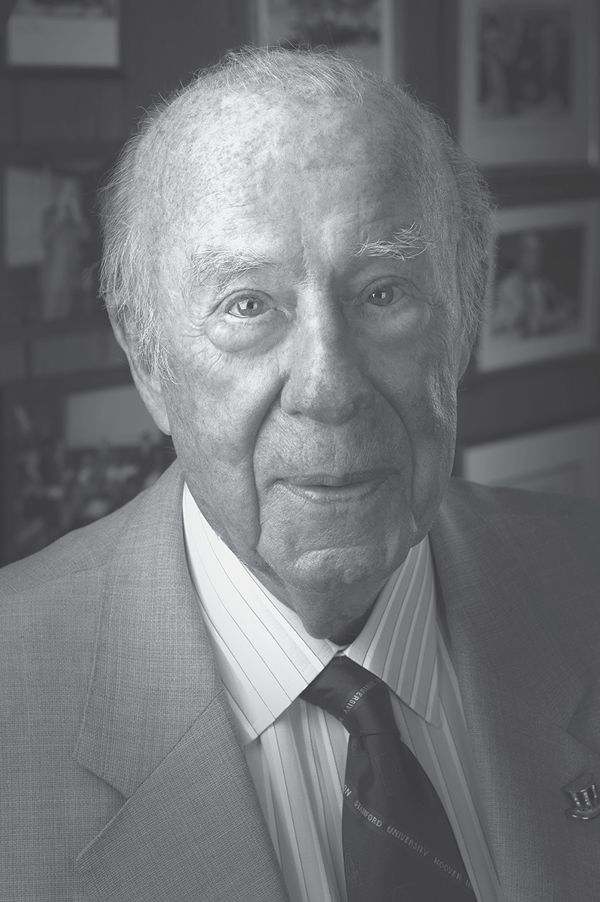
George P. Shultz. Light at 11B: Joseph Garappolo and Christian Pease, with permission.
Bills deep-seated commitment to improving the quality of life for military families is illustrated by the actions he took after observing that the level of military housing, particularly for families, was in dire need of improvement. As Bill set about assessing the issue of military housing, he was fortunate to have an additional pair of eyes and ears; while he was visiting the troops, his wife, Lee, was talking to servicemens spouses. The result of their work was an ingenious and novel public-private partnership, authorized by Congress in 1996, that dramatically upgraded, and continues to maintain, the quality of military housing.
Such breakthroughs were surely on President Clintons mind when, in the January 1997 Farewell ceremony for Bill, he awarded him the Presidential Medal of Freedom and said, Bill Perry may well be recorded as the most productive, effective secretary of defense the United States ever had.
Next pageFont size:
Interval:
Bookmark:
Similar books «My Journey at the Nuclear Brink»
Look at similar books to My Journey at the Nuclear Brink. We have selected literature similar in name and meaning in the hope of providing readers with more options to find new, interesting, not yet read works.
Discussion, reviews of the book My Journey at the Nuclear Brink and just readers' own opinions. Leave your comments, write what you think about the work, its meaning or the main characters. Specify what exactly you liked and what you didn't like, and why you think so.

